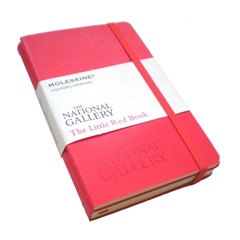 Malcolm Gladwell’s Outliers: The Story of Success by its title implies it is a how-to be successful book. And if you read my review of Outliers, I concluded it is not.
Malcolm Gladwell’s Outliers: The Story of Success by its title implies it is a how-to be successful book. And if you read my review of Outliers, I concluded it is not.
The reason for my conclusion is he doesn’t give any step-by-step methods for becoming successful. In fact, some readers come away from the book feeling there is nothing we can do to reach the pinnacles in our lives – that our success or failure in life is the result of the cards we were dealt by our parents, race and heritage.
However, I found some good success principals hidden in the book. If you read closely, and (in my case) argue with some of his logic, you come away with some astounding strategies that can offset any limitations brought on by your birth and heritage.
Keep reading to see the 6 I found hidden in Outliers…
- Put the 10,000 hour rule to work as quickly as possible - Gladwell points to many “geniuses” in current times and history. But also goes into depth about how all of these geniuses had the advantage of working 10,000 hours or more on their trades before they became well known.
The Beatles, before becoming an international sensation, didn’t know how to play their instruments. But they gained 10,000 hours of practice playing live for long gigs in Hamburg, West Germany
Bill Gates acquired 10,000 hours of programming experience by the time he was 19 – before any other teen on the planet had started programming.
Mozart, yes that Mozart, was influenced (possibly forced by his father) to learn and perform music starting at the age of 3. He got his 10,000 hours in before becoming a teenager.
So we are left with two questions
1. What one skill would you like to master?
2. How can you get your 10,000 hours of practice in as quickly as possible?Obviously, 10,000 hours is a long time. So getting started sooner is critical. Why not start today?
- Learn great negotiation communication skills – I mentioned in my review I had some squabbles with some of Gladwell’s logic that heritage and birthright account for success and failure. Communication was the biggest oversight. While the book points out examples of (for example) Oppenheimer having family advantages other physicists didn’t, Gladwell overlooks the obvious skills of communication and negotiation.
Gladwell gives the obvious example of Oppenheimer talking himself out of a prison term. What other physicists by their nature, have that power of negotiation?
However, we can all learn to negotiate. There are many good books about developing negotiation skills
, classes or even a negotiation boot camp you can take. Note, I haven’t taken Ed Brodow’s course, but I’ve heard good things about it.
Additionally, you can check out my series Winning Through Effective Self Promotion for some effective ways to break out of your shell and get your point across. But in the meantime, here are the top 3 negotiation tips in my arsenal:
A. Lead with what you want – years ago, I used to beat around the bush and rely on the other person to figure out what I’m wanting. The problem is what happens if they don’t figure it out? Now I lead with what I want.
For example a statement like “I am here to ask you for the contract.” There is no mystery in what I want. The other person knows precisely what I am there to do.
B. Provide a reason why it benefits the other person - In negotiation. the other person is always thinking “What’s in it for me?” So answer that right up front.
Example: “I am here to ask for the contract because I’ve proven I’ll save you the most money.”
C. Prove it – It is one thing to say you’ll do something. It something else to prove it. How can you prove to the other person you can and will do it? Quite often, you’ll need to do it.
If, under contract, you can save a company $50,000 a year, why not prove that during the negotiation by saving them $2,000 now? You aren’t giving away the whole $50k but you are putting forth a powerful negotiation strategy – proof!
If you can prove it, but your competitors can’t or don’t. Aren’t you more likely to get what you want?
- Rise early – Gladwell details how the Chinese philosophy of rice farming may be the single most important factor in determining why statistically, people from the orient are better at math than everyone else.
Without getting into all the prickly details of rice farming, I’ll begin with a quote typical in rice farming.
”Anyone who rises before dawn 360 days each year never fails to make his family rich.”
Most success happens during the day. And I’d argue most of the daytime success is made in the morning hours. There are many reasons beyond the scope of this article I feel this way. But logically, after lunch the body is digesting food which accounts for at least some tiredness and productivity loss.
So get up early and get to work early. If it can make a Chinese rice farmer rich, it will help you too.
- Seek autonomy – Gladwell repeatedly calls on the subject of autonomy. He says that the people who are successful were fortunate enough to have freedom to pursue their interests. While other people do not have this freedom.
Autonomy is a tricky subject.
Reason asks how can we have autonomy (freedom) while we’re in debt up to our eyeballs, working two jobs and have a family to take care of?
The answer in that case is simple. You can’t.
However, there is one thing in that example keeping you from enjoying autonomy – debt. Debt is slavery, not freedom. So if you are in debt, seek to get out of it as soon as possible.
The quickest debt reducer I can think of is to sell high priced luxury items you don’t need and use the proceeds to pay off the bill. If you are in debt due to driving a Lexus LS400, sell it and pay off that debt. Buy a used Camry. It may seem painful to give up a dream car, but freedom has a good way of erasing that pain.
Never squander autonomy
If you are out of debt and have cleared your evenings and weekends from work, do not waste this opportunity.
Use your new free time to practice. Remember 10,000 hours is the magic number. If you can put in 3 hours a night 5 days a week, you’ll be at 10,000 hours in less than 10 years.
I know, I know 10 years is a long time. But what if it was a skill you truly enjoyed? Suppose you wanted to be a classical guitarist. 3 hours of practice a night would be fun most of the time. Plus, you’d probably enjoy it so much you’d dedicate weekend hours too. And that would decrease the time spent to 7 or 8 years.
I never said success was easy…did I?
Books on debt reduction:
Dave Ramsey The Total Money Makeover
George S. Clason The Richest Man in Babylon - Take advantage of your gifts – When we discuss success, it means something different to everyone. For some it might be monetary success. For others it might be fame. For me, it is about creating helpful software and articles that benefit as many people as possible.
What would you want to master if you had the autonomy to do so?
Before you decide, take your natural gifts into account. I can hear people asking “What are my natural gifts.” Well, that’s where Gladwell does a good job of explaining how our heritage can give us a good foundation for our future success.
His examples include:
* How Jewish immigrants paved the way for their descendents to become some of New York’s highest paid lawyers.
* How immigrants from an Italian village could stave off heart disease in a corresponding American town.
* And even how a fairness law passed in Jamaica led to Malcom Gladwell’s family being educated and his eventual success as an author.
Looking at my heritage (and I don’t know my entire family history) but on the Irish side, I come from a line of Irish ‘Tinkers’. I don’t mean Tinker in the Irish Traveller sense. But instead the Tinker who fixes broken things such as pots, pans and lamps.
If you look at my gifts, I am a natural at fixing stuff – I fix broken applications and networks all day every day. But extend that out a little and you’ll see I’m pretty good at building stuff too.
So what are some of your natural gifts? What does your heritage give you in terms of skills, culture and attitudes? Are your pursuits in line with your history?
- Take advantage of luck – What is luck? Personally, I don’t believe in luck the way it’s normally defined. I also don’t talk much about it because it can be confusing.
But what I do believe is we all have good times and bad times. Luck – if you want to call it that – is when you take advantage of the good times and good opportunities.
Let me rework an example from the book to demonstrate:
Imagine Bill Gates for a minute with all of his “lucky” advantages such as access to a computer network before everyone else, the free time to program, the freedom to sneak out and learn about computers… What would Bill Gates be if he didn’t take advantage? Suppose he was sneaking out at night to pursue his dream of becoming a great basketball player.
Would Bill Gates be one of the richest men in the world if he preferred basketball to computers? No, of course not.
Like Gates, we all have good opportunities to do and be more. But what is important is to take advantage of those opportunities.
I had an “unlucky” friend who complained at me in the past about “if she only had a better education, everything would be great.” But after signing up for night classes, she stopped going after the first semester. That is not taking advantage of an opportunity – yet this person might just as easily call herself unlucky when her lack of a diploma shuts her out of yet another job.
How can you be unlucky if you have opportunity, but squander it?
So when luck happens, grab it. Don’t hold back. Move forward – take advantage.
So those are the six hidden success strategies I found in Malcolm Gladwell’s Outliers: The Story of Success. Did you find any I missed?
 Outliers: The Story of Success by Malcolm Gladwell is an interesting perspective on genius, work ethic and what it takes to make it in the world.
Outliers: The Story of Success by Malcolm Gladwell is an interesting perspective on genius, work ethic and what it takes to make it in the world. 


